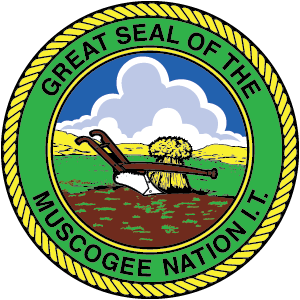Hofmeister acknowledges Muscogee (Creek) Nation as leader in investing in state’s educators
For Immediate Release
July 15, 2019
Media Contact:
Liz Gray
O: (918) 549-2453
C: (918) 758-8106
rtenl@zhfpbtrrangvba.pbz
Hofmeister acknowledges Muscogee (Creek) Nation as leader in investing in state’s educators
TULSA, Okla. – The Muscogee (Creek) Nation Department of Education hosted its EDGE Conference July 10, at the River Spirit Casino Resort.
Over 250 educators from across the state attended the collaborative opportunity for tribal nations and Oklahoma education agencies to focus on the children they have in common in the classroom.
Recent reports revealed that Oklahoma has a high concentration of children suffering from higher Adverse Childhood Experiences (ACE) scores. The ACE test consists of questions about experiences commonly associated with childhood trauma.
“The Muscogee (Creek) Nation has been a leader in investing in teacher professional development around working with children that have had hardship, abuse and neglect in Oklahoma classrooms,” Oklahoma State Superintendent Joy Hofmeister said. “All of us working together I know we can solve this and we can help see kids break the cycle of trauma.”
The conference held presentations about moving from trauma-informed to healing-centered practices, conducting tribal consultation, understanding the Johnson O’Malley Modernization Act and Native EDGE; the Nation’s response to Oklahoma’s eight-year strategic plan for the state’s education.
“A critical component of Native EDGE is this idea of working alongside the state department and the U.S. Department of Education and building these connections with those other agencies for public education,” MCN Department of Education Federal Programs Administrator Sarah Price said.
Price said building bridges with agencies allows MCN as a tribal nation to conduct research, gather data and work alongside school systems about culturally-responsive teaching. The combination of trauma-informed instruction and collaboration with teachers’ in their own classroom help to pave the way from theory to practice.
As a component of Native EDGE, MCN hosted a teacher fellowship prior to the Edge Conference with a professional development opportunity for educational experts interested in the fields of culturally-responsive teaching, student-centered learning practices and building classroom communities.
Thirty-one participants from four school districts: Eufaula, Dewar, Weleetka and Wetumka, sought assistance from the fellowship with cultural sensitivity and methods to connect with Native students.
###




